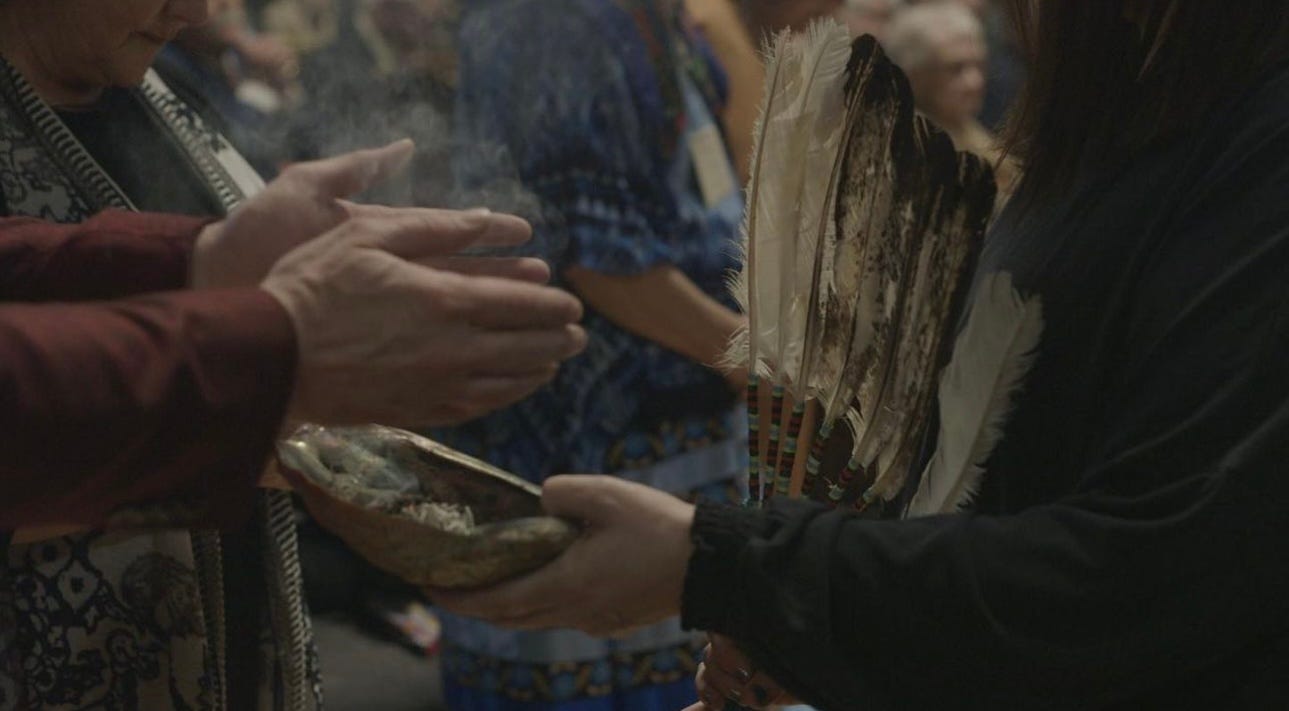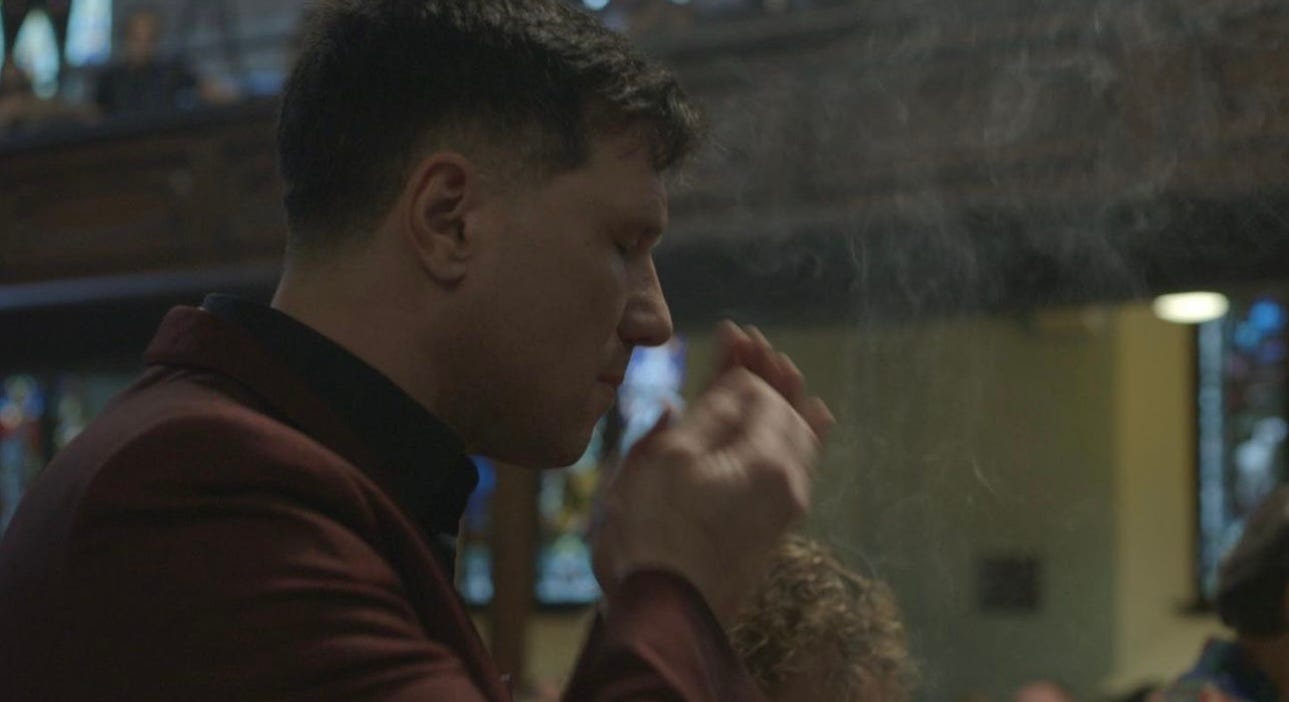Still jetlagged from my red-eye flight earlier that morning, I downed half a liter of iced Starbucks coffee as we packed up. The day ahead was going to be a big one for me, so I needed to keep sharp as possible, today wasn't one for lacking. As soon as I stepped out of my accommodations and entered the parking lot below, I assisted JR in loading his SUV with the various cinema cameras and equipment we would need. JR, my best friend and award-winning filmmaker had driven days from his home in the States to capture footage of this evening's historical event. The historical event: the induction of the first Indigenous moderator of the Presbyterian Church of Canada. It's a night of exquisite joy because, for me this was a moment where I could perceive with enhanced clarity an aspect of God that is dearest to my heart, one of justice.
"And will not God give justice to his elect, who cry to him day and night? Will he delay long over them? I tell you, he will give justice to them speedily. Nevertheless, when the Son of Man comes, will he find faith on earth?” - Luke 18:7-8
There was a strong sense of God's justice, the need to 'make things right' this evening, and reflections of that justice were all around me. The Reverend Mary Fontaine of Hummingbird Ministries, a Cree woman and my mentor, was about to make history as the first Indigenous Moderator of the Presbyterian Church of Canada. From the mid-1889 through 1969, the Presbyterian Church ran eleven residential schools that affected Indigenous communities. These schools led to significant suffering, loss of community, language, stories and for many, hope. Tonight's historic event echoed with more justice, and I believe the moment represented true reconciliation for me having witnessed it first-hand.
We held our ceremony at the Presbyterian Church of Saint David in Halifax a beautiful, classic church built in British architectural style. Inside you will find several classic wood pews, and brilliantly stunning and thought-provoking stained glass windows. I studied such a window, depicting Christ's birth, a full colour panel set against the beautiful woodwork surrounding it. It was a beautiful image, in which Mary, the mother of Jesus, presents her child to the gathered, along with the wise men and the shepards who were in attendance.
A moment later, my theological education began to take over me, and my nose crinkled at the accuracy of the biblical account that had just been presented. When we read the birth narratives in scripture we learn that shepherds and wise men weren't in attendance in any of the birth narratives we find in the gospels.
Instead of focusing on the accuracy, my gaze lingered on the baby Jesus held aloft by Mary as the centre of the piece and our focus. In this image the truth and beauty was most real, for my own focus remained on Jesus there presiding over the unity of strangers who normally wouldn’t mix, and how like this image tonights gathering was so similar. Despite being somewhat anachronistic in its presentation, artistically, this piece conveys that when we consider the gospels together, we can gain a better understanding of the unity the Creator wants for all of us
In fact, unity was the message beaming from the Holy Spirit that night, and St. David's was the appropriate place for this healing to happen. St. David's was built in the 1880s and bore witness to the first Presbyterian residential schools. In those years it never witnessed Native drums, smudge ceremony, nor Cree prayers but tonight nearly 150 years later it bore witness to reconciliation and history. I realized this moment of clarity while standing in the chancel and hearing Dorothy, an Indigenous Elder, sing. I felt a lump forming in my throat at this connection and the sacredness of the moment. This was truly a moment of healing, of a community of believers coming together with one voice, and one heart - reaching together toward a loving God.
I realized that in this place and at that time God's presence was most visible to my heart and no doubt visible to those gathered inside.
I don't remember much about my own speech, but I do remember the feeling of history as I stood at the pulpit. Tonight was a moment of healing, and I had the great honor of witnessing it.
God is a good, but also so very present in that moment. In these moments where healing justice is done, when healing of hearts happens, when a repairing of the world or ourselves occurs: God is there.
God is always there.
© 2023, Presbyterian Church of Canada







